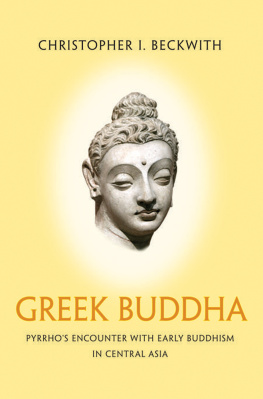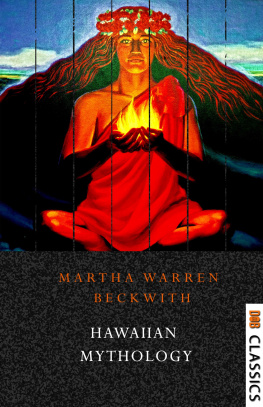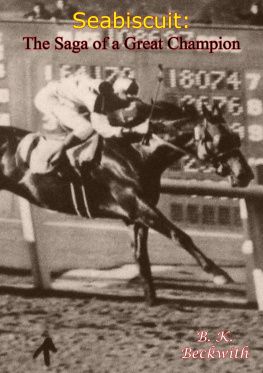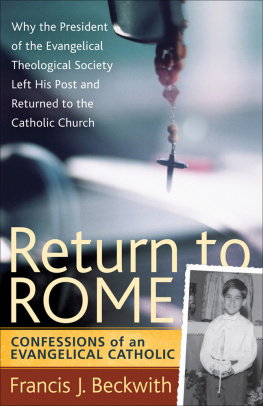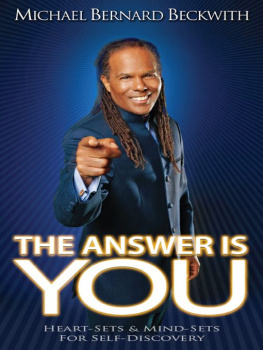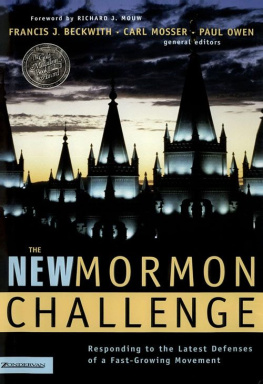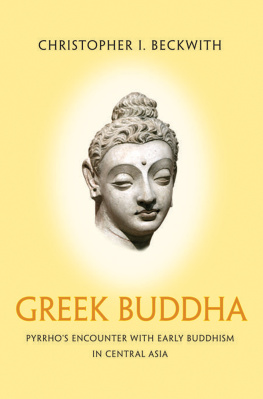Beckwith Christopher I. - 2017;2015;
Here you can read online Beckwith Christopher I. - 2017;2015; full text of the book (entire story) in english for free. Download pdf and epub, get meaning, cover and reviews about this ebook. City: Princeton;Oxford, year: 2017;2015;2015, publisher: Princeton University Press, genre: Religion. Description of the work, (preface) as well as reviews are available. Best literature library LitArk.com created for fans of good reading and offers a wide selection of genres:
Romance novel
Science fiction
Adventure
Detective
Science
History
Home and family
Prose
Art
Politics
Computer
Non-fiction
Religion
Business
Children
Humor
Choose a favorite category and find really read worthwhile books. Enjoy immersion in the world of imagination, feel the emotions of the characters or learn something new for yourself, make an fascinating discovery.
- Book:2017;2015;
- Author:
- Publisher:Princeton University Press
- Genre:
- Year:2017;2015;2015
- City:Princeton;Oxford
- Rating:5 / 5
- Favourites:Add to favourites
- Your mark:
- 100
- 1
- 2
- 3
- 4
- 5
2017;2015;: summary, description and annotation
We offer to read an annotation, description, summary or preface (depends on what the author of the book "2017;2015;" wrote himself). If you haven't found the necessary information about the book — write in the comments, we will try to find it.
2017;2015; — read online for free the complete book (whole text) full work
Below is the text of the book, divided by pages. System saving the place of the last page read, allows you to conveniently read the book "2017;2015;" online for free, without having to search again every time where you left off. Put a bookmark, and you can go to the page where you finished reading at any time.
Font size:
Interval:
Bookmark:

GREEK BUDDHA

GREEK BUDDHA
Pyrrhos Encounter with Early Buddhism in Central Asia

CHRISTOPHER I. BECKWITH
P RINCETON U NIVERSITY P RESS
P RINCETON AND O XFORD
Copyright 2015 by Princeton University Press
Published by Princeton University Press, 41 William Street,
Princeton, New Jersey 08540
In the United Kingdom: Princeton University Press,
6 Oxford Street, Woodstock, Oxfordshire OX20 1TW
press.princeton.edu
All Rights Reserved
Library of Congress Cataloging-in-Publication Data
Beckwith, Christopher I., 1945
Greek Buddha : Pyrrhos encounter with early
Buddhism in Central Asia / Christopher I. Beckwith.
pages cm
Includes bibliographical references and index.
ISBN 978-0-691-16644-5 (hardback)
1. Pyrrhon, of Elis. 2. BuddhismHistoryTo ca. 100 A.D. 3. BuddhismInfluence. 4. Buddhism and philosophy. I. Title.
B613.B43 2015
186'.1dc23
2014044329
British Library Cataloging-in-Publication Data is available
This book has been composed in Charis
Printed on acid-free paper.
Printed in the United States of America
1 3 5 7 9 10 8 6 4 2
Contents

Preface

I n the past few decades a quiet revolution has been under way in the study of the earliest Buddhism. Its beginnings lay in the discoveries of John Marshall, the archaeologist who excavated the great ancient city of eastern Gandhra, Taxila (near what is now Rawalpindi), and published his results in 1951. The evidence was incontrovertible: the Buddhist monastery, the vihra, with its highly distinctive architectural plan, appeared there fully formed in the first century AD, and had been preceded by the rma, a crude temporary shelter that was also found there.traditional notions, and these have prevented a comprehensive, principled account of Early Buddhism from developing.
The most important single error made by almost everyone in Buddhist studies is methodological and theoretical in nature. In all scholarly fields, it is absolutely imperative that theories be based on the data, but in Buddhist studies, as in other fields like it, even dated, provenanced archaeological and historical source material that controverts the traditional view of Early Buddhism has been rejected because it does not agree with that traditional view, and even worse, because it does not agree with the traditional view of the entire world of early India, including beliefs about Brahmanism and other sects that are thought to have existed at that time, again based not on hard data but on the same late traditional accounts. Some of these beliefs remain largely or completely unchallenged, notably:
the belief that ramaas existed before the Buddha, so he became a ramaa like many other ramaas
the belief that there were ramaas besides Early Buddhists, including Jains and jvikas, whose sects were as old or older than Buddhism, and the Buddha even knew some of their founders personally
that, despite the name ramaa, and despite the work of Marshall, Bareau, and Schopen, the Early Buddhists were monks and lived in monasteries with a monastic rule, the Vinaya
that, despite the scholarship of Bronkhorst, the Upanishads and other Brahmanist texts are very ancient, so old that they precede Buddhism, so the Buddha was influenced by their ideas
that the dated Greek eyewitness reports on religious-philosophical practitioners in late fourth century BC India do not tally with the traditional Indian accounts written a half millennium or more later, so the Greek reports must be wrong and must be ignored
perhaps most grievously, the belief that all stone inscriptions in the early Brahmi script of the Mauryan period were erected by Aoka, the traditional grandson of the Mauryan Dynastys historical founder, Candragupta, and whatever any of those inscriptions say is therefore evidence about what went on during (or before) the time he is thought to have lived
we know what problematic terms (such as Sanskrit dukha ~ Pali dukkha) mean, despite the fact that their meaning is actually contested by scholars, the modern and traditional dictionaries do not
These and other stubborn unexamined beliefs have adversely affected the work of even the most insightful scholars of Buddhism. Yet no contemporaneous or near-contemporaneous hard evidence of any kind affirms such beliefs. Moreover, it is bad enough that such ideas have caused so much damage for so long within Indology, but the resulting misinformation has inflicted damage in other fields as well, including ancient Greek and Chinese philosophy, where the traditional construct has been used as the basis, once again, for rejecting the hard data, forcing scholars in those fields to attempt to explain away what seems to be obvious Indian Buddhist influence. This then helps maintain the traditional fiction of three totally unrelated peoples and traditions as cultural islands that had absolutely no contact of any kind with each other until much later times, as used to be unquestioned belief as recently as Karl Jasperss famous book on the Axial Age, and continues, by and large, among those who follow in his footsteps.
Setting aside the traditional beliefs mentioned above, and much other folklore, what hard data might be found on the topic at hand? What sort of picture can we construct based primarily on the hard data rather than on the traditional views? In the present book I present a scientific approach, to the extent that I have been able to do so and have not been mislead by my own unrecognized views.
It is important to note that this book is not a comparison of anything. It is also most definitely not a critique or biobibliographic survey of earlier research. Such a study would be great to have (and in fact, an excellent bibliography on Pyrrhonism was published by Richard Bett in 2010), but I have cited only what I thought necessary to cite or what I was able to find myself, with a strong preference for primary sources.
I have attempted to solve several major problems in the history of thought. The most important of these problems involves the source of Pyrrhos teachings. I would like to call it philosophy, and I have sinnedsometimes willfullyby doing so when I talk about Early Pyrrhonisms more philosophical aspects, but in general to call it philosophy in a modern language is to seriously mislabel it. The same would be true if I called it religion. It was to some extent both, and to some extent neither, and it was science, too.
I first spent a great deal of time reexamining and rethinking the Greek testimonies of Pyrrhos thought, and in 2011 finally published a long article on the topic in Elenchos (reprinted with minor revisions in ). I then looked into the studies which claimin accord with statements of ancient authorsthat Pyrrho acquired his unusual way of thought in India. I also read studies that claimed the exact oppositethat he did not learn anything at all of major importance for his thought thereand other arguments which essentially claim that Indian philosophy is basically Greek in origin. That forced me to investigate Early Buddhism in depth, with the result that I discovered the above problems, among others, and my study became much longer and more involved than I had expected.
Next pageFont size:
Interval:
Bookmark:
Similar books «2017;2015;»
Look at similar books to 2017;2015;. We have selected literature similar in name and meaning in the hope of providing readers with more options to find new, interesting, not yet read works.
Discussion, reviews of the book 2017;2015; and just readers' own opinions. Leave your comments, write what you think about the work, its meaning or the main characters. Specify what exactly you liked and what you didn't like, and why you think so.

